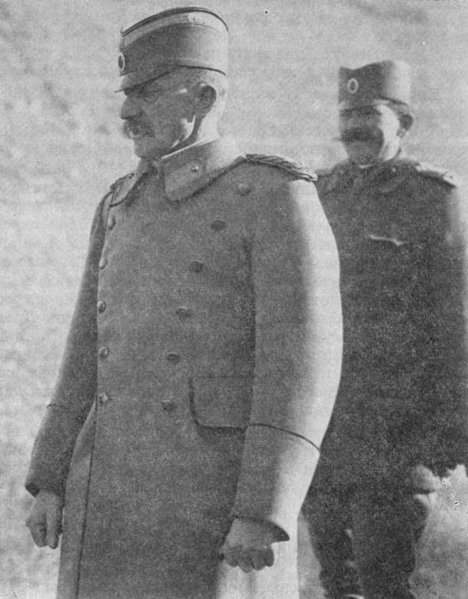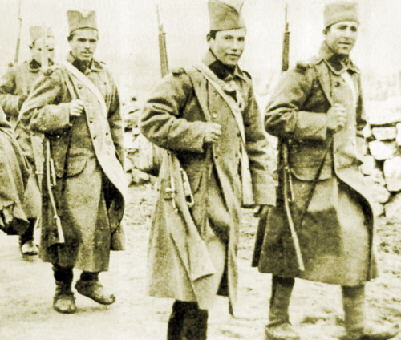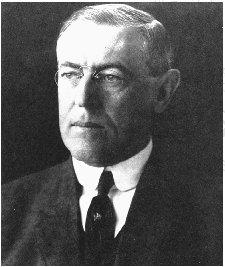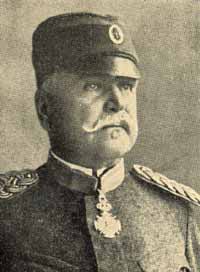|
|
Post by SKORIC on Nov 23, 2008 7:29:13 GMT -5
Pictures from one of the most heroic yet tragic periods in Serb history - WW1 and the Balkan wars  Austro-Hungarian soldiers preparing to execute Serbian woman. Austro-Hungarian soldiers preparing to execute Serbian woman. Austro-Hungarian soldiers executing civilians in Serbia. Serbia had one of the largest civlian death tolls in WWI. Almost half a million civilians died. Austro-Hungarian soldiers executing civilians in Serbia. Serbia had one of the largest civlian death tolls in WWI. Almost half a million civilians died. Austro-Hungarian troops hanging people in Krusevac. Austro-Hungarian troops hanging people in Krusevac.  Bones of massacred civilians by Bulgarian troops. Bones of massacred civilians by Bulgarian troops. Kralj Petar at the front lines after the Battle of Kolubara Kralj Petar at the front lines after the Battle of Kolubara Captured Austro-Hungarian equipment after the Battle of Cer. Captured Austro-Hungarian equipment after the Battle of Cer. Dead soldiers and officers of 13th. Regiment. Dead soldiers and officers of 13th. Regiment. Serbian troops carrying their sick commander Radomir Putnik. Serbian troops carrying their sick commander Radomir Putnik. During retreat in Albania. During retreat in Albania. Fighting against Albanians who ambushed them. Fighting against Albanians who ambushed them. Last line of defence. Serbian troops waiting for the Austrian attack. Last line of defence. Serbian troops waiting for the Austrian attack. Serbian soldiers who died during their retreat being thrown into the "Blue Grave" on Krf Serbian soldiers who died during their retreat being thrown into the "Blue Grave" on Krf Serbian soldier carrying his child during the retreat over Albania. Serbian soldier carrying his child during the retreat over Albania. Starved and exausted Serbian soldier Cedomir Popovic. Starved and exausted Serbian soldier Cedomir Popovic. Kralj Petar during the war. Kralj Petar during the war. Lost Child. This picture really shows the real face of the war. Lost Child. This picture really shows the real face of the war. Recovered Serbian troops in Greece!!! Recovered Serbian troops in Greece!!!
|
|
|
|
Post by SKORIC on Nov 23, 2008 7:42:49 GMT -5
King Petar with the troops. Serbian soldier keeps an eye on the captured Austro-Hungarian soldiers. Serbian soldier keeps an eye on the captured Austro-Hungarian soldiers. This is how they looked when they arrived at Krf. This is how they looked when they arrived at Krf. Serbian artillery. Serbian artillery. WW1 Chetniks, Kings Elite Soldiers WW1 Chetniks, Kings Elite Soldiers Serbian army crossing Sava. Serbian army crossing Sava. Serbian female officer of 2nd. Regiment, Milunka Savic. Serbian female officer of 2nd. Regiment, Milunka Savic. Crossing river Drim in Albania. Crossing river Drim in Albania.
|
|
|
|
Post by SKORIC on Nov 23, 2008 7:51:43 GMT -5
Quote from German kaiser Wilhelm (1859-1941), from a speech to his troops  ".....Heroes, I'm sending you in a new war against a small but brave nation. ".....Heroes, I'm sending you in a new war against a small but brave nation.
They are the serbs who in the last 3 wars against Turkey, Bulgaria and Austria-Hungary have shown the world the highest warrior ethos and capability..." |
|
|
|
Post by SKORIC on Nov 23, 2008 8:13:51 GMT -5
Mobilization in 1914. Recruits from Valjevo. Recruits from Valjevo. Stepa Stepanovic in Kragujevac. Stepa Stepanovic in Kragujevac. A group of Serbian soldier in Nis, 1914. A group of Serbian soldier in Nis, 1914. Carrying ammo. Carrying ammo. Getting some rest. (Probably Montenegrins) Getting some rest. (Probably Montenegrins)   Artillery being moved on the defence positions. Artillery being moved on the defence positions. Trenches at Gucevo, September 1914. Trenches at Gucevo, September 1914. Serbian infantry at Gucevo, 1914. Serbian infantry at Gucevo, 1914. March toward Gucevo. March toward Gucevo. Prince Djordje at Mackov Kamen, where he was wounded. Prince Djordje at Mackov Kamen, where he was wounded. Burial of Soldiers Burial of Soldiers
|
|
Kralj Vatra
Amicus
 Warning: Sometimes uses foul language & insults!!!
Warning: Sometimes uses foul language & insults!!!
20%
Posts: 9,814
|
Post by Kralj Vatra on Nov 23, 2008 11:43:56 GMT -5
Smrt austromagiarski pas.... The SERB EPOS of WWI is one of the bravest moments of MAN KIND. Skoric, great work, sometimes i feel you send Deuce and Hajduk back to kinder garden  |
|
|
|
Post by kapetan on Nov 23, 2008 15:14:58 GMT -5
So how come Serbs don't hold a grudge with the Bulgarians like they do with everyene else over this shit?
|
|
|
|
Post by bog on Nov 23, 2008 15:31:43 GMT -5
. . . . ww1, most meaningless war ever! guess you gotta respect that they stood up to an empire, but meaningless war non the less.. and Gorstak, its more fun to hold grudges against poeple who are fewer in numbers then you  |
|
|
|
Post by srbobran on Nov 23, 2008 20:50:30 GMT -5
Even though the Bulgarians are less than us anyways.
|
|
|
|
Post by bog on Nov 23, 2008 21:07:18 GMT -5
Even though the Bulgarians are less than us anyways. then hold a grudge against them also  hmm, I'm gonna ruin one of your other threads, not this one. As much meaingless as ww1 was, hats off for standing up to an empire,, |
|
|
|
Post by SKORIC on Nov 24, 2008 5:23:36 GMT -5
Zivojin Misic Poster with Kralj Petar in the trenches Poster with Kralj Petar in the trenches Serbian women hung Serbian women hung Karabin's Sig Karabin's Sig   Young Serb soldiers 1915 Young Serb soldiers 1915 Drinkin up Drinkin up   Serbian King Petar at the front Serbian King Petar at the front More civilians needlessly killed.. More civilians needlessly killed..
|
|
|
|
Post by SKORIC on Nov 24, 2008 5:30:18 GMT -5
On July 28, 1918, President Woodrow Wilson gave the following message to the American people. It was read in churches throughout the country and published in virtually all major newspapers. The Serbian flag was raised over the White House and all public buildings in this nation's capital. To the People of the United States: To the People of the United States:
On Sunday, 28th of this present month, will occur the fourth anniversary of the day when the gallant people of Serbia, rather than submit to the studied and ignoble exactions of a prearranged foe, were called upon by the war declaration of Austria-Hungry to defend their territory and their homes against an enemy bent on their destruction. Nobly did they respond.
So valiantly and courageously did they oppose the forces of a country ten times greater in population and resources that it was only after they had thrice driven the Austrians back and Germany and Bulgaria had come to the aid of Austria that they were compelled to retreat into Albania. While their territory has been devastated and their homes despoiled, the spirit of the Serbian people has not been broken. Though overwhelmed by superior forces, their love of freedom remains unabated. Brutal force has left unaffected their firm determination to sacrifice everything for liberty and independence.
It is fitting that the people of the United States, dedicated to the self-evident truth that is the right of the people of all nations, small as well as great, to live their own lives and choose their own government, and remembering that the principles for which Serbia has so nobly fought and suffered are those for which the United States is fighting, should on the occasion of this anniversary manifest in an appropriate manner their war sympathy with this oppressed people who have so heroically resisted the aims of the Germanic nations to master the world. At the same time, we should not forget the kindred people of the Great Slavic race--the Poles, the Czechs and Jugo-Slavs, who, now dominated and oppressed by alien races yearn for independence and national unity.
This can be done in a manner no more appropriate than in our churches. I, therefore, appeal to the people of the United States of all faiths and creeds to assemble in their several places of worship on Sunday July 28, for the purpose of giving expression to their sympathy with this subjugated people and their oppressed and dominated kindred in other lands, and to invoke the blessings of Almighty God upon them and upon the cause to which they are pledged.
Woodrow Wilson, President,
The White House, July, 1918.
|
|
|
|
Post by SKORIC on Nov 24, 2008 5:41:18 GMT -5
"General, Please Ask the Serbs to Slow Down…”90 years ago, on September 13 1918, at dawn, the Commander-in-Chief of the Allied Forces in the Balkans, French General Franchet d’Espérey, ordered the final offensive for the breakthrough of the Thessaloniki front. Serbian Army which led the offensive on the ground played the key role in a battle studied even today at countless military academies throughout the world, as a shining example of a glorious victory. At 5:30 a.m. the Serbian troops began and unstoppable surge from the Greek border back in to Serbia, to free their motherland, pushing the Austrians, Germans and Bulgarians out of their country. In 12 days they advanced 800 miles on foot, forcing the French general to telegraph his counterpart in the Serbian Army, General Stepanovic: “General, please ask the Serbian infantry to slow down, the French cavalry cannot keep up the pace!”The command issued by General Zivojin Misic to the Serbian Army at the dawn of the battle was brief and clear: “Boldly press forward, without rest, to the utter limits of the human and horse strength. To death, just don’t stop! With the unwavering faith and hope: Heroes, forward! to the fatherland!”On September 13 1918, the state which was at the brink of complete destruction in the fall of 1915 — occupied by the most powerful empires, left without the army, government and king — rose up from the ashes and amazed the world with its courage and willingness to sacrifice for freedom.  ^ French General Franchet d’Espérey “These Serbs are tough in trouble, sober, modest, unbreakable. They are the free men, proud of their nation and the masters of their fields… For the freedom of their homeland these peasants instantly turned into the most courageous soldiers, the most persistent, the best of all soldiers,” - French General Franchet d’Espérey, Commander-in-Chief of the Allied troops in WWI.
|
|
|
|
Post by srbobran on Nov 24, 2008 18:15:40 GMT -5
“Boldly press forward, without rest, to the utter limits of the human and horse strength. To death, just don’t stop! With the unwavering faith and hope: Heroes, forward! to the fatherland!”
Just beautiful. Good finds, mate.
|
|
|
|
Post by bog on Nov 24, 2008 18:25:39 GMT -5
At the end of the day, the Serb army had a much better rifle then the Austrian forces, and hence won at the beggining....
I am not so sure as to how "different" in capability the old rifles were, but seen as then most armies only fielded infantry, and arytilery... It would be like a Thompson Machine gun vs. a M4 or AK-74 today.. I think, perhaps I am wrong...
Also I have never gotten why the Austrians attacked from Bosnia, it would have been more logical to just move straight on Belgrade from Vojvodina, where they would have the advantage of more numerous artillery...
|
|
|
|
Post by SKORIC on Feb 27, 2009 1:21:54 GMT -5
Sergeant Olive Kelso King  1914/15 Star 1914/15 Star
British War Medal
Victory Medal
Edward VII Coronation
Cross of the Order of St Sava.
Serbian Silver Medal for Bravery
Gold Medal for Zealous Conduct (Serbia)
Samaritan Cross (Serbia)Sergeant Olive Kelso King. King was born in Croydon, Sydney, NSW on 30 June 1885, daughter of Sir George Kelso and Irene Isabella King. An adventurous and strong-willed woman, she was already an accomplished mountaineer, traveller and motor mechanic with a flair for languages when, in her late 20s, she visited her sister in England, just as the First World War started. Her response, in early 1915, was to join the Allied Field Ambulance Corps as a driver. She purchased a 3 litre French Alda lorry which she had converted into an ambulance capable of seating 16 patients. She christened it "Ella" (short for "elephant") the nickname referring to the effect the heavy ambulance bodywork had on slowing the Alda from its usual 40 mph to a lumbering 30. An engraving of this vehicle appears on the reverse of King's Serbian identity bracelet. She travelled to Belgium where she was temporarily held by the authorities, suspected of being a spy and consequently abandoned by the Ambulance Corps, which also took her ambulance. She was quickly released just ahead of the advancing German Army. Returning to England and recovering "Ella", King joined the Scottish Women's Hospital (SWH) in May 1915. In October 1915 the unit sailed to Salonika, in Macedonia, aboard the SS Mossoul. Their role in the Balkans was to provide medical assistance to the Serbs in their fight against the Austro-Hungarians, Germans and Bulgarians. King quickly picked up the Serbian language and proved herself brave in the face of Bulgarian fire when evacuating patients at Guevgueli, from which she only just managed to escape. The allies retreated to Salonika, where the SWH established a tent hospital. King remained here for the next two and a half years, even after the SWH had left the country. She resigned from this organisation in mid 1916 and enlisted in the Serbian Army as a driver. She was attached to the Headquarters of the Medical Service and eventually rose to the rank of sergeant. She had managed to retain "Ella", despite its broken springs and mechanical problems (many of which she repaired herself) and it was one of only three ambulances available to the Medical Headquarters unit, thus earning the number plate C3. Towards the end of 1916, Olive King contracted malaria and one of her most frequent visitors was Captain Milan "Yovi" Yovitchitch, the Serbian Liaison Officer with the British Army in Salonika. They fell in love and saw each other every day until October 1917, when he was posted to London. Yovitchitch gave her a sterling silver cigarette case as a memento of their affair, which had been the subject of gossip around Salonika. King wrote to her father and sister frequently (see "One Woman at War" edited by Hazel King) and clearly enjoyed her job despite the danger and horror she witnessed. She frequently travelled to the front, transporting men and recovering wounded. Her tireless efforts in evacuating civilians and medical stores during the burning of the mainly wooden town of Salonika in August 1917 earned her the Serbian Silver Medal for Bravery. (see right) In 1918 her committed work for the Serbians earned her the Gold Medal for Zealous Conduct. Before the war's end, supported by over 10,000 pounds raised by her father in Sydney, she had established a string of Australian Serbian Canteens to help displaced Serbian families and soldiers. For this work King Alexander presented her with the Samaritan Cross and the Cross of the Order of St Sava. (see above left) Back home after the war in 1923, Olive put her energy into the Girl Guides Association, becoming State Secretary and later Assistant State Commissioner (1932/42). She tried to enlist as a driver during the Second World War but was deemed too old. Instead she worked at the de Havilland Aircraft factory at Mascot between 1942 and 1944 as a quality examiner. Olive Kelso King died in 1958.   
|
|
|
|
Post by SKORIC on Feb 27, 2009 1:22:52 GMT -5
The Serbs - The Guardians of the Gate
by R.G.D. Laffan  The classic in this genre remains the R.G.D.Laffan's series of lectures delivered in Salonica and published after the war as Guardians of the Gate. For Laffan, it is not simply that the Serbs are so obviously superior physically to all their neighbours: 'the thoroughbreds of the Balkans', as he calls them. It is also their idealism, lyricism and sensitive spirituality that sets them apart and demands our solidarity in their hour of need. Even the contributor of the foreword to Laffan's lectures, a no-nonsense naval officer, finds himself swept away on a tide of awestruck admiration, writing: 'Serbia has indeed well and bravely answered the great question He asked: "What shall it profit a man if he gain the whole world and lose his own soul?". The classic in this genre remains the R.G.D.Laffan's series of lectures delivered in Salonica and published after the war as Guardians of the Gate. For Laffan, it is not simply that the Serbs are so obviously superior physically to all their neighbours: 'the thoroughbreds of the Balkans', as he calls them. It is also their idealism, lyricism and sensitive spirituality that sets them apart and demands our solidarity in their hour of need. Even the contributor of the foreword to Laffan's lectures, a no-nonsense naval officer, finds himself swept away on a tide of awestruck admiration, writing: 'Serbia has indeed well and bravely answered the great question He asked: "What shall it profit a man if he gain the whole world and lose his own soul?".
|
|
|
|
Post by SKORIC on Feb 27, 2009 1:48:52 GMT -5
Pavle Jurisic Sturm Pavle Jurišić Šturm (Serbian Cyrillic: Павле Јуришић Штурм) (August 8, 1848 – January 14, 1922) was a Serbian general of Sorbian origin who commanded the Serbian 3rd Army in the First World War. Šturm was one of the most important commanders in the Serbian army in the World War I, especially during the first two years of the war, the time when his 3rd army was main support either for the 2nd army during the battle of Cer, or for the 1st army during the battle of Kolubara. Šturm was born and raised in Görlitz, Prussian Silesia, when the Görlitz region was still part of the homeland of the Sorbs. His parents were both ethnic Sorbs, and his name on German papers was Paulus Sturm, while his Polish name was Pavle/Pawel. He finished the royal Prussian military academy in Breslau (Wrocław) and went to Serbia before the Balkan wars to fight the Ottoman Turks, studying in the Serbian military academy and volunteering in the Serbian Army. He fell in love with Serbia instantly, marrying a Serbian woman, and changed his name from Pavel to Serbian Pavle, and his last name Sturm to the typical Serbian last name that was modulated translation of his German last name - Sturm, meaning "Storm" in German was translated into Jurišić, with the root of the word "charge" ("juriš" in Serbian ). Šturm kept his German last name as an alias. His son, who he had with his Serbian wife, was a sergeant officer in the Serbian army, and he passed all major battles in World War I, from Cer and Kolubara, and then retreated over frozen Albania, the resurrection of the Serbian army on the island of Corfu, and the charge of the Serbian army, breaking the Salonika front. Šturm defeated the Bulgarian army at Vardar river and River Crna that led to the Bulgarian capitulation. He then retook all the major cities and returned to Serbia, defeating August von Mackensen's army and chasing German armies further to the north, even after the triumphal entering in the capital Belgrade. After years of peace that followed, Šturm stayed in Serbia and the Serbian army with the rank of major. He died 1922 in his home in Belgrade. When Germany invaded Yugoslavia in World War II, the first organized armed rebellion was conducted by the circle of officers led by Chetnik general Draža Mihajlović. The Germans had spread their nets to catch the rebels' leader, and once they had them surrounded on the estate of one of the officers. Together with the Chetnik leaders of rebellion was Šturm's son. In the moment when the rebels started to shoot and intended to break the siege, his son took the coat of Mihajlović, forcing the Germans to follow him, thinking that he was the rebellion leader they came to catch. By the time they had realised the deception, it was too late, as Mihajlović had fled. The Germans took Šturm's son to the Gestapo and interrogated him. When he told them that he was the son of Pavle Jurišić, they wanted to release him, because of his father's origin in Germany. But, he took this as an insult and stood up and yelled:" If I even had German blood in me, that German blood had leaked out of me on Salonika front! I am Serb!" A couple hours later, he stood in front of the firing squad, yelling the famous Chetnik salute: "Long live the King! Long live Motherland Serbia!"
|
|
|
|
Post by SKORIC on Feb 27, 2009 1:49:40 GMT -5
Radomir Putnik+Radomir+Putnik-+p.+6+3X5.jpg) Stepa Stepanovic Stepa Stepanovic Zivojin Misic Zivojin Misic Petar Bojovic Petar Bojovic Victorious Serbian army on parade in Paris after the war Victorious Serbian army on parade in Paris after the war 
|
|
|
|
Post by jerryspringer on Feb 27, 2009 4:12:55 GMT -5
Why were the women hanged? Were they not civilian?
|
|
|
|
Post by bob1389 on Feb 27, 2009 4:21:08 GMT -5
Pictures from one of the most heroic yet tragic periods in Serb historyWell said. Out of all I respect the WW1 generation the most. The fight, the struggle is epic. Nationalism in it's pure form. It was something extra. That said, for me it's hard to watch the videos, see the pictures ... too much death and destruction on a scale that is hard to comprehend. We lost a good bulk of our population back then, and its effects still haunt us today. Although when you think about WW2 wasn't much different either...the mass deaths and all  |
|